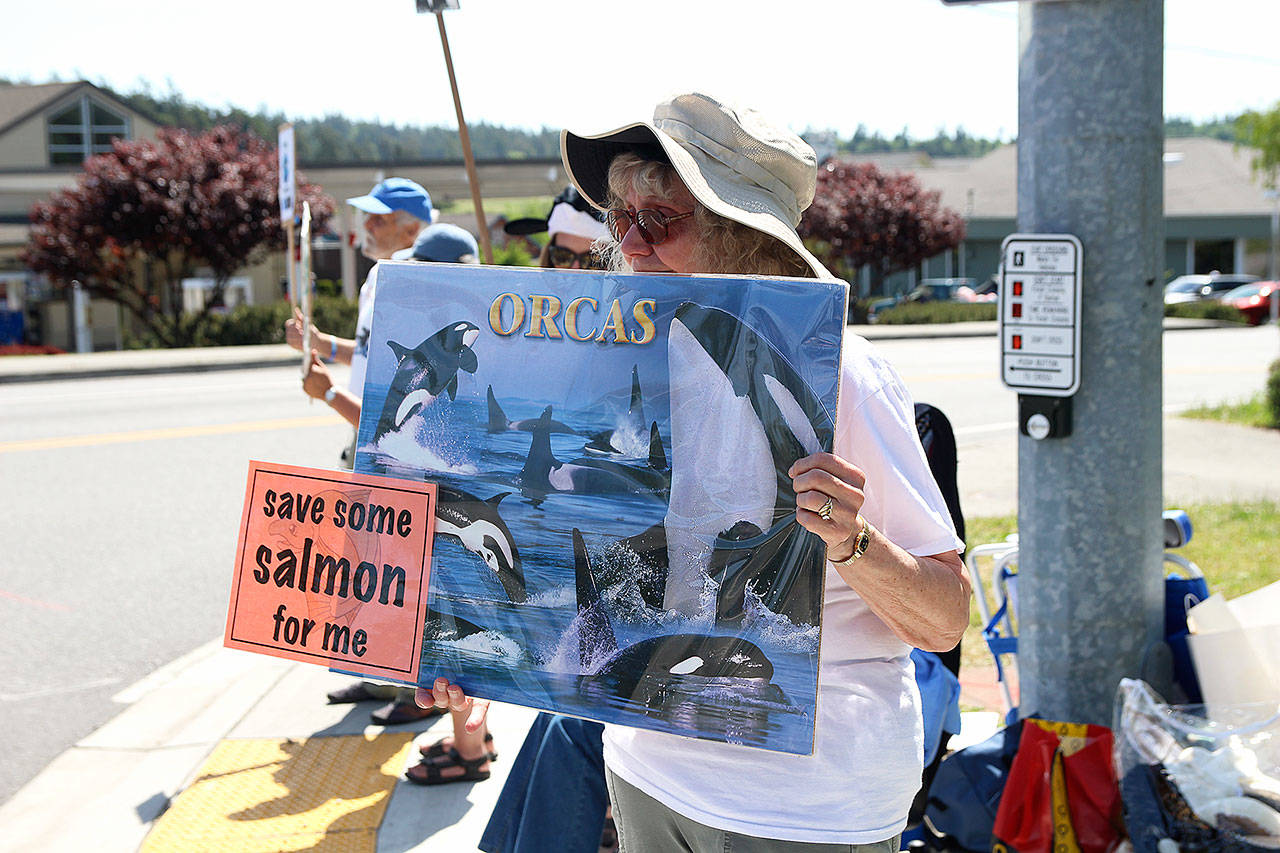Nearly half a century later, the fight for Lolita continues.
Starting 11 a.m. Saturday, about 20 people gathered at the intersection of Main Street and State Highway 20 in Coupeville as part of the annual international protest Empty the Tanks. Though the protesters expressed concerns for all captive orcas, there’s one tank in particular they want to see emptied.
Lolita, or Tokitae, is the last surviving member of the infamous 1970 orca capture, and she still resides in the nation’s smallest orca tank at Miami Seaquarium.
“I can’t believe we’re still protesting this (expletive),” said Tammy Shelton, “because it’s horrible.”
She and her husband, Gary Shelton, traveled from Port Ludlow to join the Coupeville protest, and in years past had come from Yakima to join the cause. As a child she saw Namu, the first orca to perform together with a human in the water. The cetacean died after a year in captivity, and her memory of that resolved her to eventually join the Empty the Tanks cause.
The annual protest is organized by the nonprofit Empty the Tanks, which this year hosted 16 events in North America and more than 40 in countries around the world. On its website, the organization recognizes that not all of these creatures are equipped to be released in the wild. For some, retirement to sea pens might be the best option.
Howard Garrett, Orca Network co-founder and board president, said the controlled release into a sea pen is Lolita’s best option.
The organization, in collaboration with several other wildlife groups and the Lummi tribe, has had an evolving retirement plan for the mammal for years. It involves transporting the 22-foot, 7,000-pound orca to a sea pen off the coast of Orcas Island and providing extended veterinary care.
Some scientists believe transporting an older orca who has spent so much of her life in captivity could do more harm than good, according the Miami Herald. Experts told the newspaper that the move itself might be too much stress for the animal and might cause her to be vulnerable to oil spills, diseases and other harm.
Howard, on the other hand, thinks she’s a perfect candidate.
“I’ve gained a lot of respect for Lolita,” Garrett said.
He cited her apparent mental and physical resilience. According to Orca Project research, the animals last on average less than 10 years in captivity.
Lolita’s ability to survive in her 80 by 60 concrete pool gives him hope she would thrive in a return to her native waters, even if she can’t be fully released into the wild.



